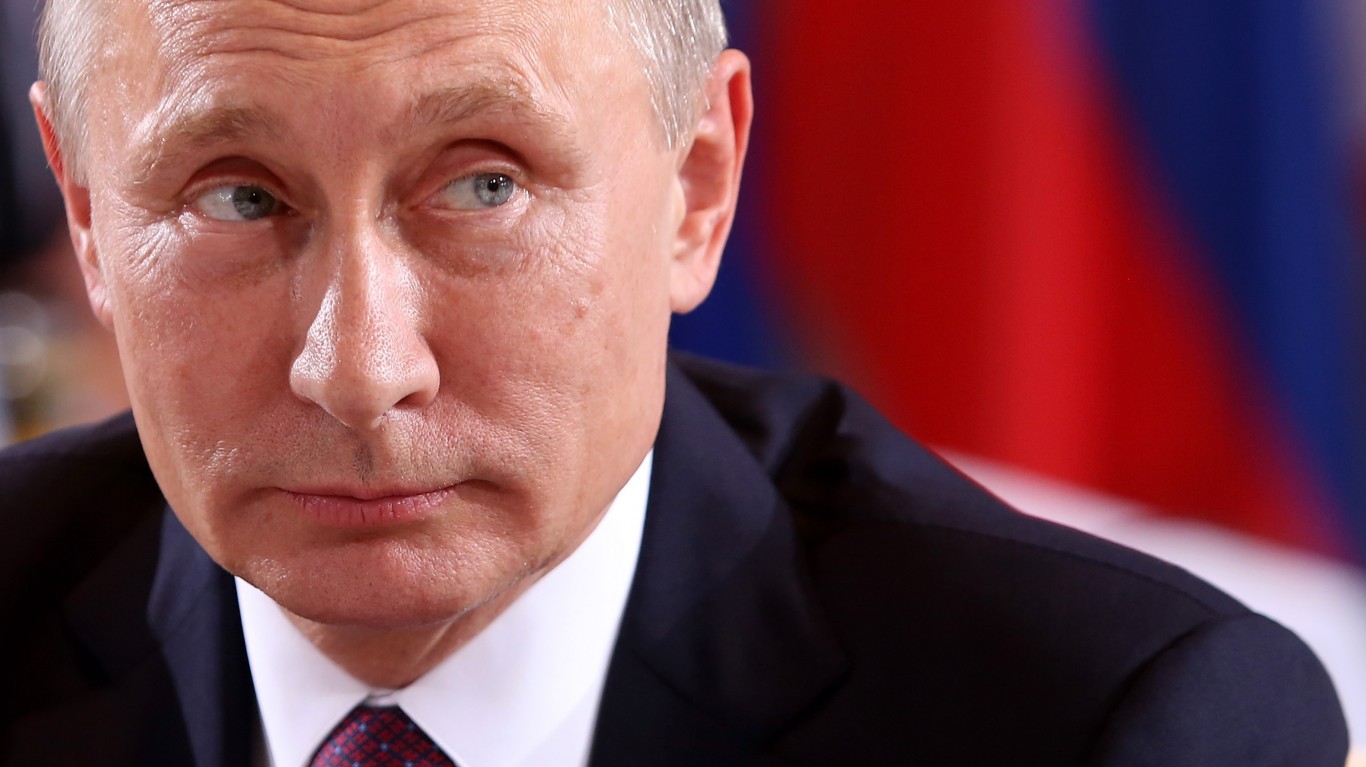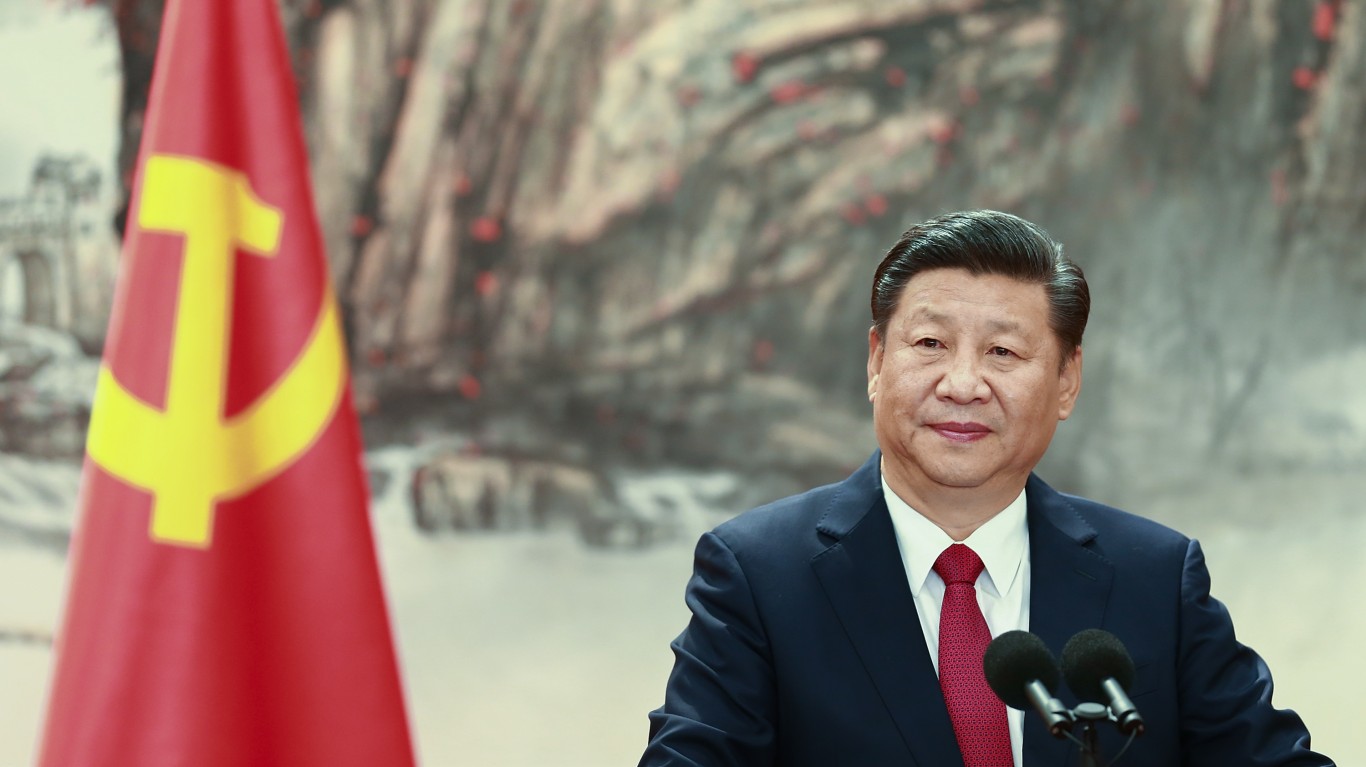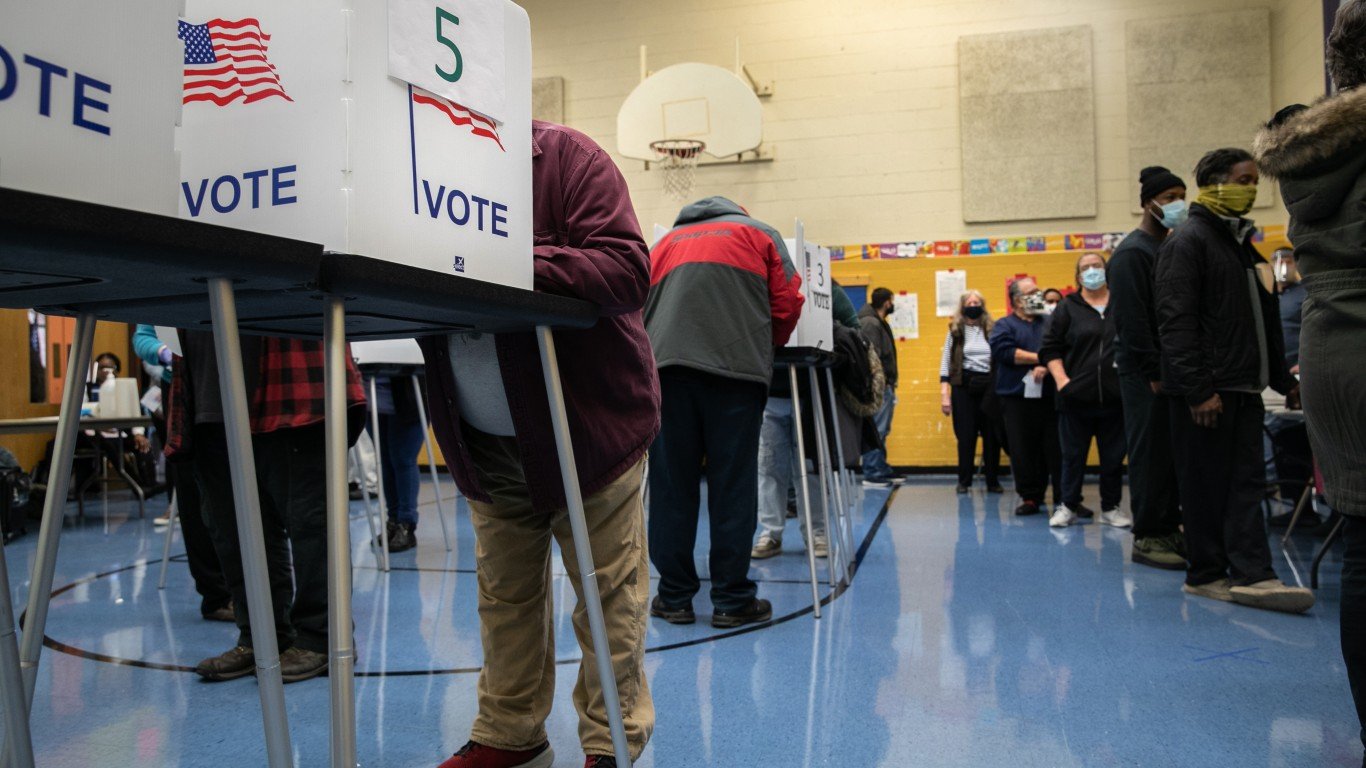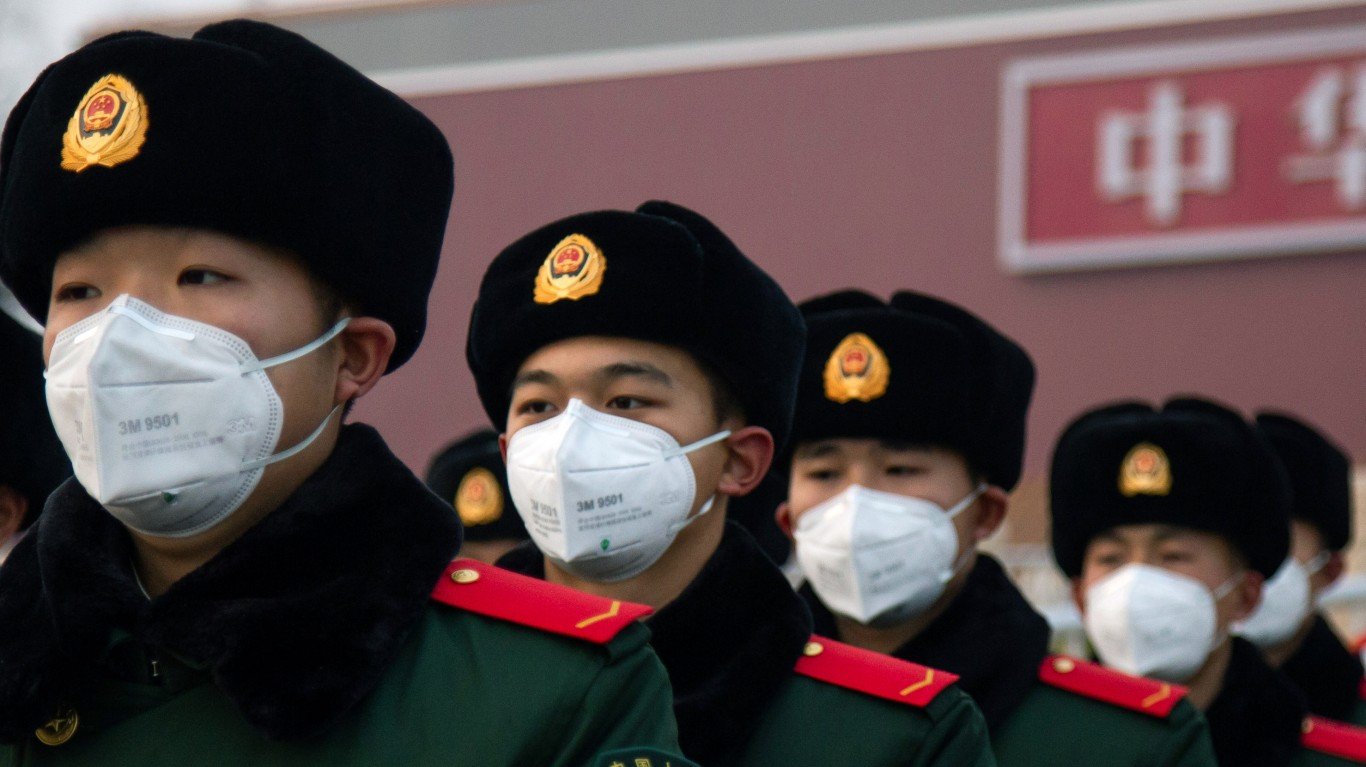
5. Russia
Heading into 2022, Russia is poised to precipitate multiple crises – both internationally and within the United States. Late last year, Russian President Vladimir Putin began building up troops along the border of Ukraine, a former republic of the Soviet Union. As of mid-January, Putin has amassed over 127,000 troops in the region with Washington saying Russia is poised to invade its neighbor at any point. Such an outcome would mean a failure in diplomatic talks between Washington and Moscow would likely result in economic sanctions and NATO forces pushing closer to Russia – potentially straining the already fraught U.S.-Europe relations.
Other threats posed by Russia include cyber attacks targeting U.S. infrastructure, the dissemination of misinformation in the lead up to the 2022 midterm elections, and Russia’s strengthening alliance with China.

4. Instability in China
One of the largest markets in the world is facing a considerable set of challenges in 2022. These include what appear to be an exhausted model for economic growth, an unbalanced economy, an aging population, and a zero COVID-19 policy.
Tight controls wielded by President Xi Jinping will likely only exacerbate these problems, as the Chinese government undermines companies perceived to be too powerful. Such policies de-incentive smaller companies from scaling up, while reducing productivity growth and international competitiveness of the country’s most dynamic companies.

3. U.S. midterm elections
The 2022 midterm elections in the United States will likely exacerbate existing beliefs among millions of Americans that the U.S. electoral system is rigged or broken. If the Republican Party underperforms, political leaders on the right will likely claim widespread voter fraud and fraudulent ballot counting, in keeping with the GOP playbook following the 2020 presidential election. If the Democratic Party underperforms, leaders on the left will likely point to gerrymandered districts and new voting laws that are seen by many as a means of disenfranchising minority voters.
Both of these potential outcomes will likely further erode public trust in institutions and more deeply entrench divisive party narratives. The degree to which confidence in American democracy is undermined in this year’s election will have significant implications for the looming 2024 presidential election, and could set the stage for a constitutional crisis in a closely contested race.

2. Technology-driven polarization and data hacks
The growing digitization of nearly all aspects of life will not be without significant downsides in the coming year and beyond. What people do and see online, which impacts how people think and behave in the real world, is increasingly in the control of a handful of companies. Governments will be limited and likely incompetent in their ability to regulate online spaces. Tech companies themselves have little incentive – or even know-how – to competently self-regulate their own online platforms.
In the short-term, these conditions will likely manifest themselves in the increased spread of disinformation, data leaks, and disruptions to financial markets. What happens from there is anyone’s guess.

1. China’s Zero COVID-19 policy
In the face of highly vaccinated populations and newly available viral treatments in much of the industrialized world, the COVID-19 pandemic may soon become endemic, according to Dr. Anthony Fauci, barring the emergence of a more elusive variant that is. The reality in China, the world’s second largest economy, is far different. The country’s zero COVID-19 policy has meant lockdowns for the last two years – and also a population with no antibodies against the omicron variant.
Ultimately, the zero COVID-19 policy that President Xi is keeping in place will fail, the Eurasia Group predicts, and larger outbreaks across the country will require larger lockdowns. These may lead to worsening supply chain disruptions, which will have ripple effects around the world.

 24/7 Tempo
24/7 Tempo




